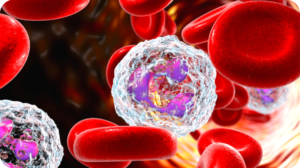If the term “hypnotherapy” brings to mind stage magicians and sleight-of-hand performers, think again. Hypnotherapy is a legitimate, established practice commonly used to complement more traditional methods of psychological treatment. It can be part of a larger therapy plan, or the main method of treatment itself, used to treat a specific disorder. There are several federal and state hypnotherapy organizations, including the American Society of Clinical Hypnosis, and the American Hypnosis Association. Many of these provide testing and certification. Psychologists are often certified and licensed in the practice, through state agencies.

Sometimes called “guided hypnosis,” hypnotherapy is used for a range of mental problems. It can be effective against any condition involving hidden or repressed memories or motivations. The conditions it is used to treat include:
- Addictive behaviors
- Phobias
- Anxiety
- Depression
- Sleep disruption
- Weight loss
- Stress
In all cases, the treatment requires that patient be open to the therapy. Typical hypnotherapy involves concentration and focus, and methodical relaxation to help the patient look deeper into their unconscious. The point with hypnotherapy is always to access thoughts or memories that the unconscious hides from the conscious mind as a form of self-protection.
Most patients find the therapy relaxing, insightful, and often revealing. Depending on the issue being addressed, the therapist will use one of two different hypnotherapy approaches.
Types of Hypnotherapy
All hypnotherapy involves the therapist working through a series of steps to relax the patient and induce a trance-like state. The approach the therapist takes beyond that depends on what the goal of treatment is.
- Suggestive hypnotherapy. This involves guiding the patient through root causes of unwanted actions, with the therapist suggesting new, positive behaviors or thinking to resolve the issue. Suggestive therapy is used to, for instance, help a patient stop smoking.
- Analytical hypnotherapy. As the name suggests, this involves the therapist exploring hidden memories from events that occurred years and even decades before. The therapist analyzes the information that is uncovered as the patient works backward into the traumatic memories—which is why this approach is sometimes called “regression therapy.”
Studies have shown that used correctly in appropriate cases, either of these techniques can be effective.
Finding the Right Hypnotherapist
It should be clear that hypnotherapy is an extremely personal type of treatment. It is essential that the patient trust the practitioner completely, otherwise the patient won’t be able to relax into the treatment.
That’s why searching for the right hypnotherapist involves actually talking to potential candidates prior to making a commitment to treatment. Price will be one factor, but the more important consideration is whether you feel comfortable with the practitioner. Once you’ve narrowed down your choices, take the time to check references and determine that other patients like you have had positive experiences and resolved issues working with the therapist.
Share some love if you like this post!





